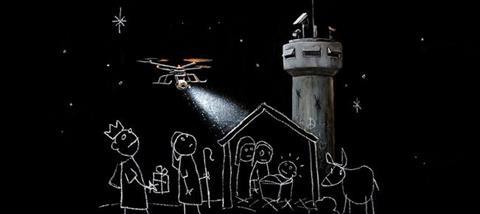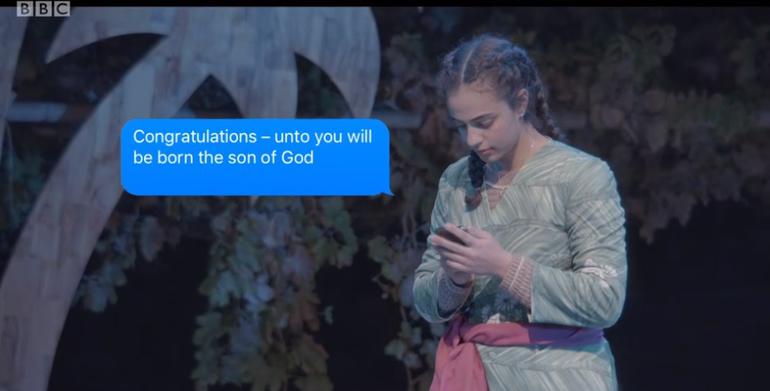
A couple arrived in Bethlehem on Christmas Eve after a long journey that took in Nazareth and Capernaum, only to find there was no room.
This particular journey to Bethlehem didn’t take place 2,000 years ago – it happened in 2015. I was the Joseph in this story and my wife the Mary. And we were not travelling for a census, or to have a baby – our three grown-up children were with us. We were travelling for an Anglican service at the Greek Orthodox Patriarch’s chapel at the Church of the Nativity.
But our coach had become detached from the convoy of vehicles that left St George’s Cathedral in Jerusalem and by the time the security officials let us through, the service had begun. The President of the Palestinian Authority, Mahmoud Abbas was attending the start of the service and his security detail had taken up the space – so there was no room for us in Bethlehem, until his pre-arranged departure 10-minutes after the service began. That is our Alternativity.
As good a story as it is – I’ll be dining out on it for years – it isn’t as good as BBC Two’s 'Alternativity', which told the story of a Nativity play in the car park of the Walled Off Hotel – the quirky and unusual tourist spot established by the anonymous street artist Banksy in the shadow of the Israeli security / separation wall that all-but surrounds the Little Town:
Banksy had contacted the Academy Award-winning director Danny Boyle and asked him to direct a nativity play at the hotel. BBC Two’s Alternativity, which was produced and directed by London-based documentary maker Martin Webb, came in two parts: the first hour-long episode told the story of how the Nativity play was put together; while the second 30-minute episode showed the Nativity play itself.
Making programmes about or with Palestinians is difficult. And I’m not talking about the logistical problems caused by the Israeli law that bans its citizens from entering Area A of the West Bank – the area under Palestinian Authority control – which includes Bethlehem, reducing the available pool of local film crews and facilities providers. I’m talking instead about the extreme polarisation of the political debate, which means that anybody doing anything here usually will be criticised by those who say you are not anti-Israel enough; or that you are too anti-Israel; or that you are not pro-Palestinian enough, or you are too sympathetic to the Palestinians.
The Alternativity didn’t fall into either trap. Instead, it documented what was Danny Boyle’s first visit to Israel and Palestine. It captured his shock on seeing the separation wall for the first time. It is a shock which I experience every time I see it – and I have seen it many times. But rather than leave it at his shock and unease at the wall’s presence; the documentary showed him explaining why the Israeli government erected it in the first place.
And it showed parents talking about how they don’t let children go near the wall; and how they try to protect them from the political situation they find themselves living in. The protection of children was something that Danny Boyle stressed in turning down some of Banksy’s ideas. The children are not vessels to carry jokes that they will not understand, he says. The political situation is never far from the surface in this film. It can’t be. It is part of daily life in the Palestinian Territories. At one point, it appears that they may need a new sheep to replace Sofia, because her dad had been detained on suspicion of leading the Popular Front for the Liberation of Palestine.
But despite this, the political situation doesn’t dominate the programme. This is a programme about and with Palestinians and it portrays life – it portrays the Palestinian people – in a positive way. Boyle sets up the project, but persuades local actress and director Riham Isaac to act as assistant producer.
The programme showed the real difficulties in setting up a Nativity play in the shadow of the wall: not the security situation – although there is a fear that local people wouldn’t attend an event so close to the wall – but how to make it snow in Bethlehem; and where to find a donkey who won’t be freaked out by the lights and noise.
The Alternativity is well worth a watch. Your hearts will melt when Mary, played by Elissa Rismawi, sings her song at the finale.
And the mood of the two films is summed up by the play’s closing words: "Jesus was born here in Bethlehem to bring peace to mankind. Peace? Well, let’s say he is still working on that!"
Alternativity is available to watch on the BBC iPlayer
Click here to request a free copy of Premier Christianity magazine





























